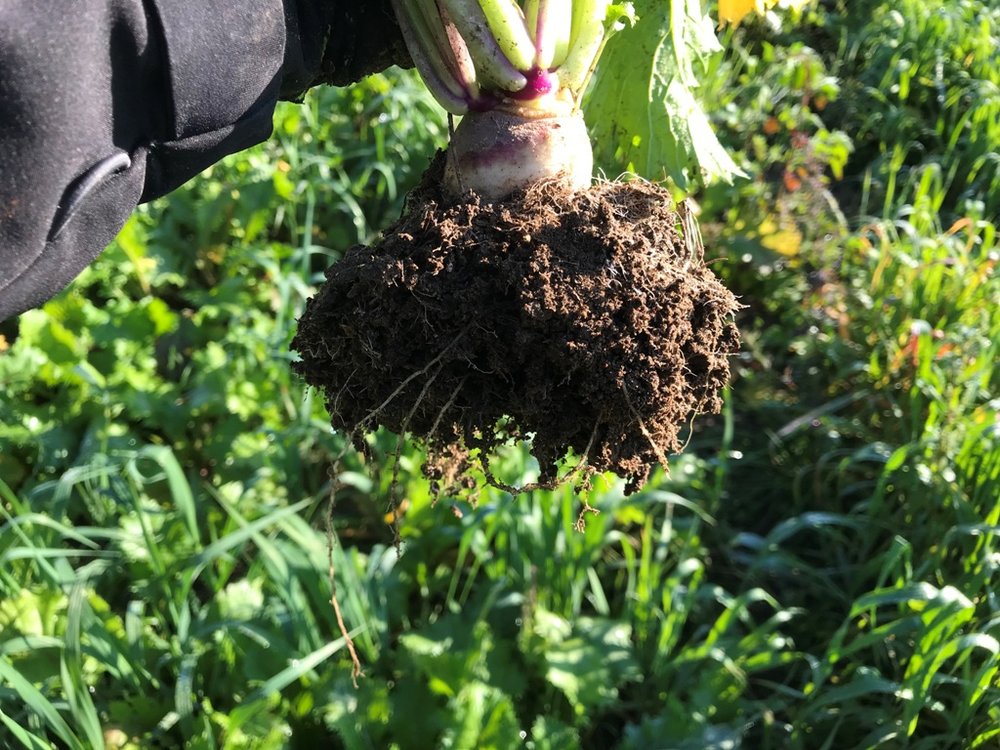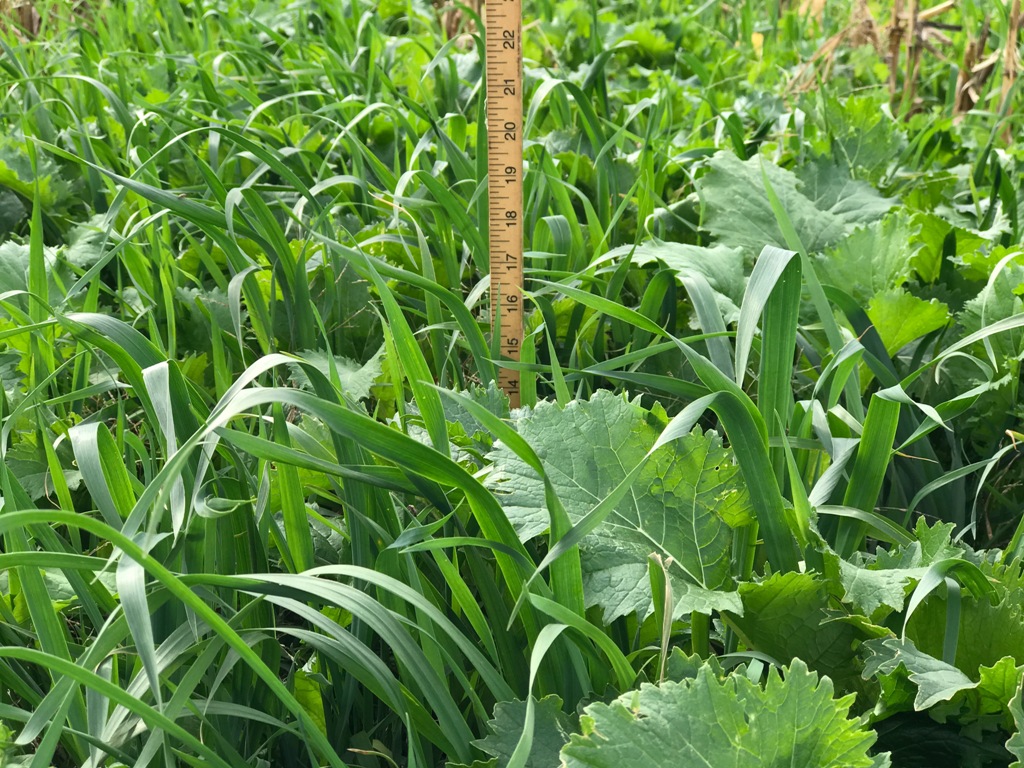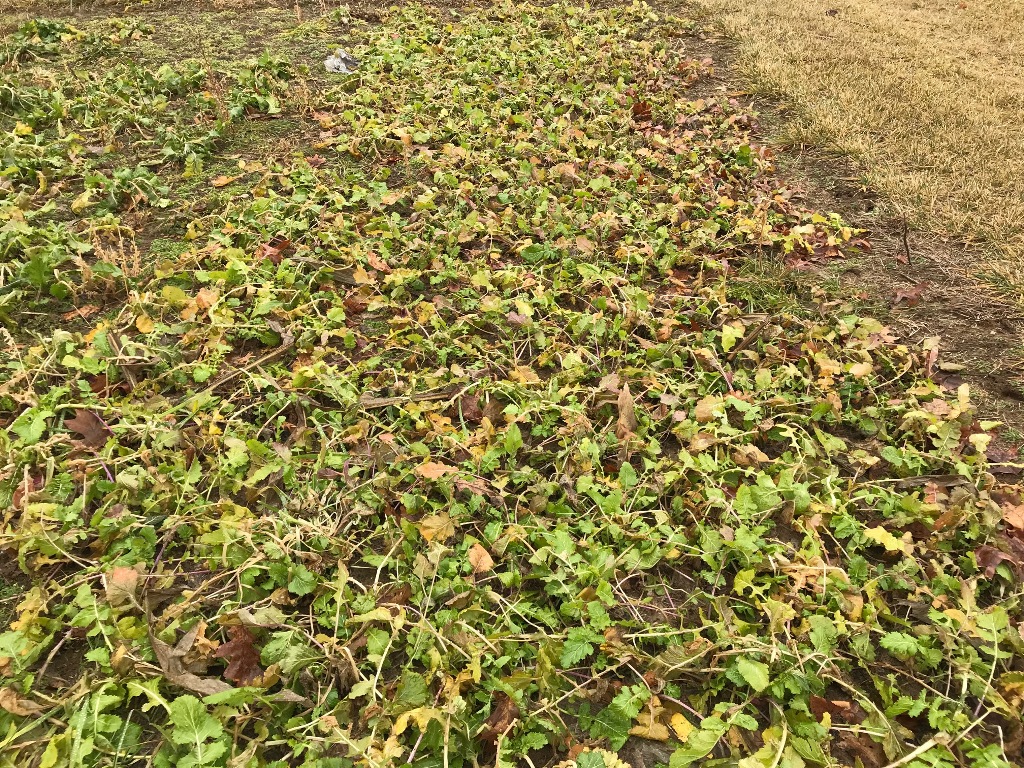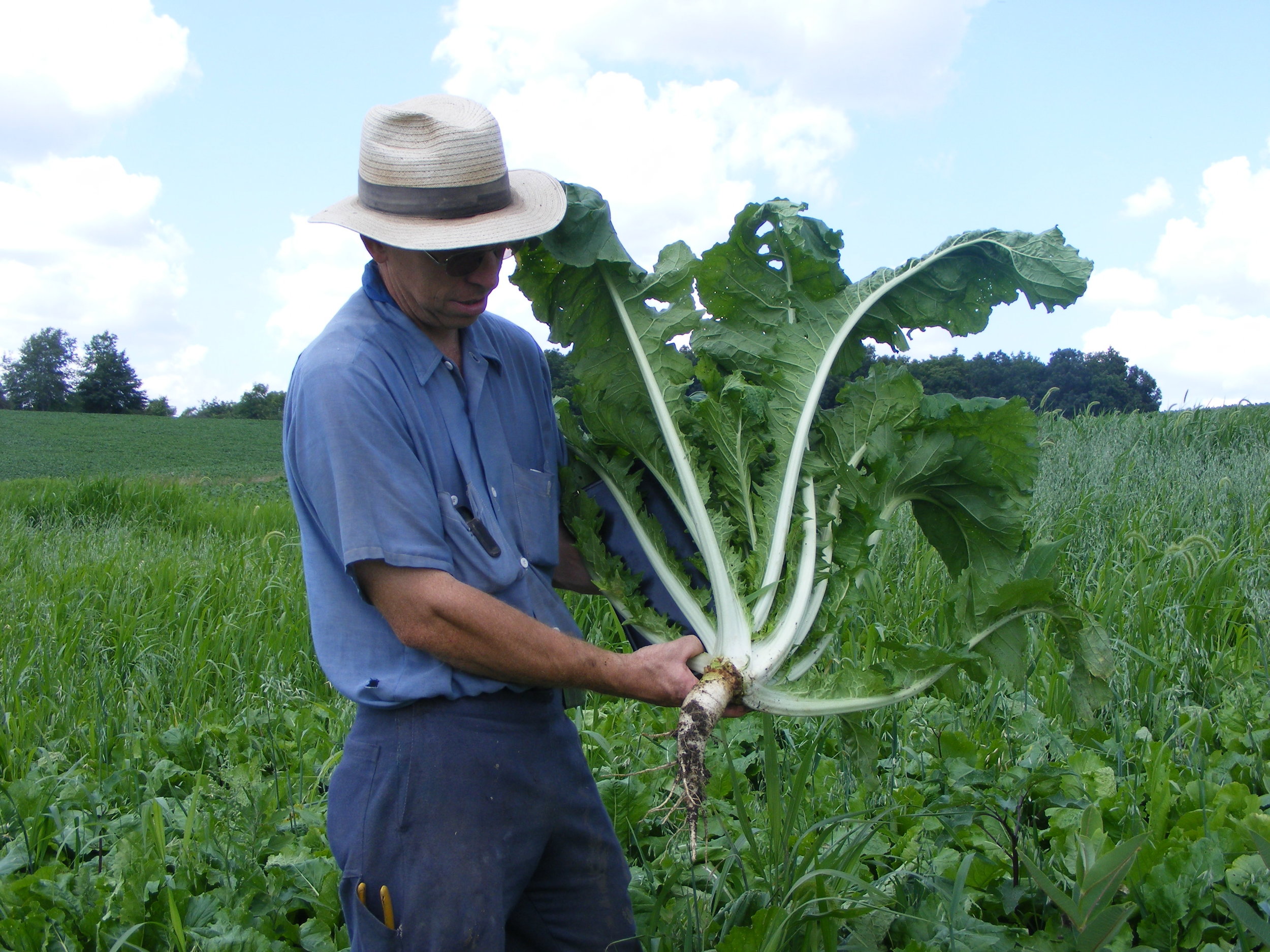Turnips are an upright, cool season broadleaf that works well in cover crop mixes. They have leafy top growth, a bulb, and fibrous roots hairs. They tend to last longer in the fall when compared to radish and can often overwinter.
Seeding Rate (lbs. / acre)
- Drill: 2-4
- Broadcast: 3-5
- In a mix: 1-2
– Planting depth: 1/8”–1/4”
– Approximate seeds/lb: 240,000
– Days to germination: 5-7
Turnip Benefits & Info
- Turnips tend to persist longer in the fall (compared to radish), improving nutrient cycling
- Overwintering is common but terminates easily in the spring
- Works well alongside forage oats, breaking up compaction and shading out competition
- Grows best in pH 5.5 – 6.8
Forage Considerations
- Great forage for ruminant livestock
- Various types and varieties deliver different benefits, based on the shape of the tuber and leaf/bulb ratio
- Purple top turnips are widely used, but the varieties listed below perform particularly well in grazing systems:
Appin
Bred for grazing; expect excellent re-growth and multiple grazings when management and weather conditions allow; high leaf yield
Barkant
High sugar content improves palatability; reliable bulb yield and top growth. The picture below is in January after a massive amount of snow and sub-zero temps – still has excellent ground cover.
Pasja
Hybrid brassica with high leaf/bulb ratio; bred for rapid growth (50-70 days)



